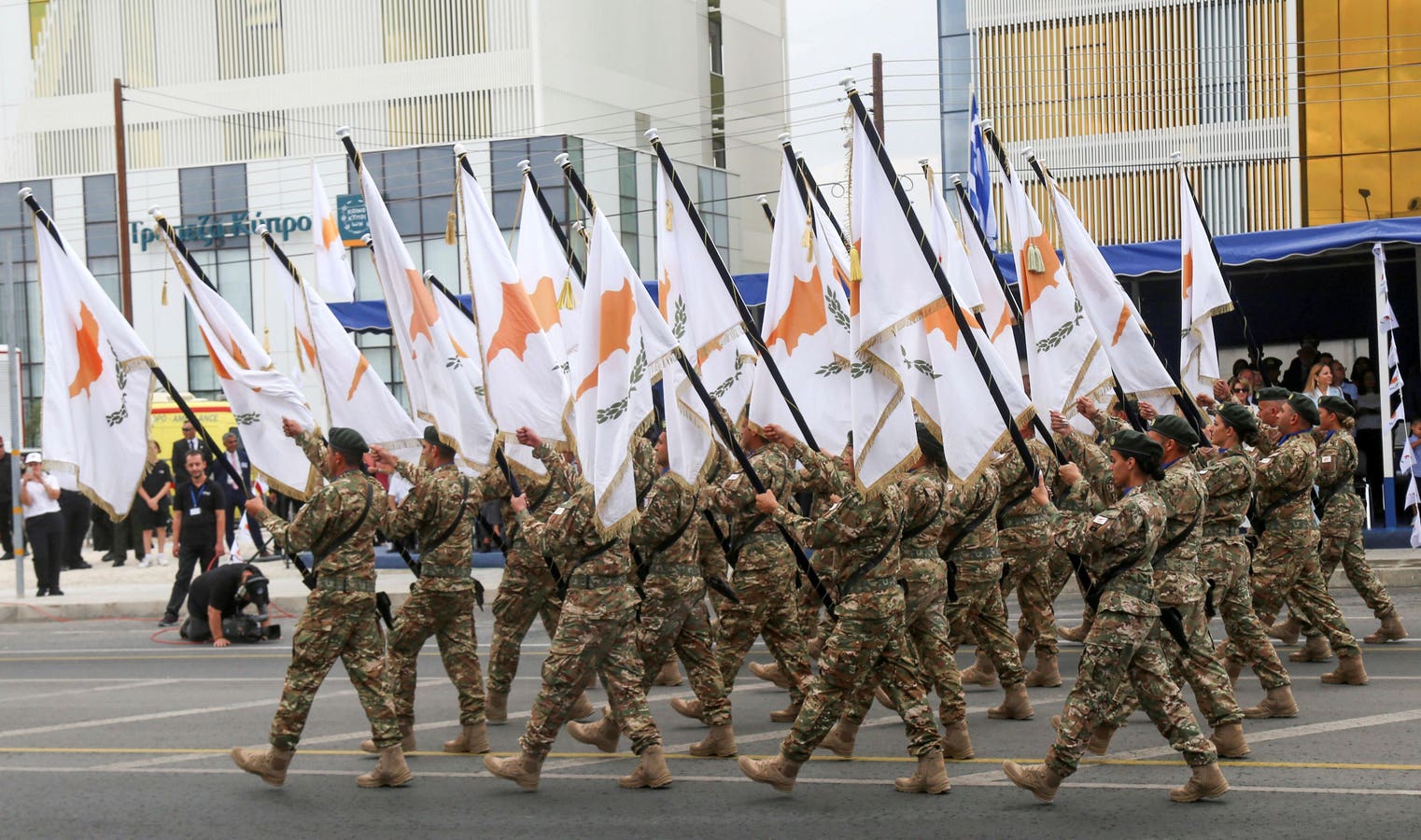The Republic of Cyprus is continuing its military buildup with new acquisitions and an eye on eventually joining NATO.
President Nikos Christodoulides expressed this intent in an interview with the Associated Press in late November 2024.
“Because we don’t want the National Guard to lose such opportunities, we’re in talks with the U.S. – and we thank them for their positive response – on how the Cyprus Republic can make the best use of these opportunities, so when everything is in its place, the Cyprus Republic can become a member state of NATO,” he told the news organization.
In another interview in early December, Cypriot Defense Minister Vasilis Palmas underlined the need for Cyprus to upgrade its defenses given its location.
“The situation in the eastern Mediterranean, with its continuous shifting geostrategic balances and competing interests makes it even more pressing for the island to bolster its defensive capabilities,” he told AP.
Concurrently, Cyprus acquired at least two Barak MX air defense missile batteries and dozens of interceptor missiles from Israel for an undisclosed price. The Israeli system will eventually replace Russian-built Tor-M2 air defenses currently in service with the Cyprus National Guard and is part of a broader effort to replace older Russian weaponry acquired in the 1990s with Western systems.
“It is a very important acquisition. But what matters more is not the acquisition itself but the steady improvement of ties with Israel, which can bring multi-dimensional benefits to the Republic of Cyprus,” George Tzogopoulos, a senior fellow at the Centre International de Formation Européenne, told me.
President Christodoulides entered office in early 2023 with a pledge to allot at least 2 percent of the island republic’s gross domestic product toward defense spending in line with the recommended amount for NATO member states.
“The Republic of Cyprus is strengthening its defense indeed. The tendency is gradual, though,” Tzogopoulos said.
Citing European Defense Agency data, he noted that from 2018-23, the total defense expenditure of the island rose to 518 million euros ($539 million) from 382 million ($397 million), while defense investments increased to 130 million euros ($135 million) from 62.2 million ($64.75 million).
“In my opinion, the Republic of Cyprus is attempting to modestly contribute to European defense initiatives and demonstrate its relative geopolitical importance as the EU is making some minor steps in the defense sector,” Tzogopoulos said.
“In tandem with this, stronger ties with the USA are pushing the country to Westernize its armed forces by spending and investing more,” he added. “Of course, the regional environment also plays a role toward the same direction.”
“Last summer, Hezbollah directly threatened the Republic of Cyprus, causing some alarm not only in Nicosia but also in Washington.”
However, the prospect of Cyprus gaining admission into NATO any time soon is pretty slim, given that NATO member Turkey would doubtlessly oppose it. Turkey is the only country that recognizes the breakaway Turkish Republic of North Cyprus, which administrates one-third of the island and has long deployed approximately 35,000 troops there.
“I don’t see how the Republic of Cyprus could join NATO under current circumstances. Turkey should give its green light, and this will not happen without a resolution to the Cyprus Question,” Tzogopoulos said.
“The general discussion can perhaps exert some pressure on Turkey to abandon its idea about a two-state solution, but – even then – history demonstrates the complexity of solving the Cyprus Question after the 1974 military invasion,” he added.
While Washington is interested in safeguarding and encouraging Nicosia’s Western orientation, Tzogopoulos noted that this is happening “irrespective” of the discussions over NATO memberships. More military deals, acquisitions, and training are likely within this context.
“Nicosia is currently making a strategic calculation which has opportunities and risks. Opportunities are relevant to closer ties with the West by constantly showing its utility to the USA, and also Israel,” Tzogopoulos said. “But risks are serious and are concerned with the disenchantment of both Turkey and Russia and the alignment of their policies at the expense of Nicosia’s interests.”
“The priority for the Republic of Cyprus has been diachronically the resolution of the Cyprus Question – and not its engagement in regional and international competition.”
In the analyst’s view, Cyprus’s main backer, Greece, missed an opportunity in the immediate aftermath of Russia’s full-scale February 2022 invasion of Ukraine.
“They could have then linked the potential NATO membership of Finland and Sweden to that of the Republic of Cyprus,” he said. “Under extreme circumstances, results could have been better – at least limiting the influence of Turkey.”
Unsurprisingly, Turkey has slammed Nicosia’s recent defense acquisitions. The Turkish Foreign Ministry has called them “wrong,” warning they could “start an arms race” on the divided island.
The Turkish parliament speaker also claimed that Cyprus will soon “see that the weapons they buy are useless.” Turkey previously threatened to preemptively attack Nicosia in the late 1990s when it ordered long-range, strategic S-300PMU-1 air defense systems from Russia, sparking a crisis that was only defused when Greece agreed to take the missiles. It seems unlikely Turkey and Cyprus are at risk of another crisis like that today.
Nevertheless, renewed tensions are a strong possibility.
“Turkey is highly concerned about the new foreign policy orientation of the Republic of Cyprus, which includes closer ties with the USA and Israel,” Tzogopolous said. “Nicosia’s acquisition of Western weapons of different types is indicative of the trend that is evolving fast after the lift of the U.S. arms embargo.”
The U.S. imposed an arms embargo on Cyprus in 1987 in a bid to prevent an arms race on the island. That’s why Cyprus turned to Russia for S-300s in the 1990s. It’s also why Nicosia bought French weaponry over the years, notably Exocet anti-ship missiles. The U.S. decided in 2020 to end its decades-old embargo, potentially paving the way for American arms sales to the republic.
As Turkey boosts its Eastern Mediterranean naval presence under its Blue Homeland maritime doctrine, it views Cyprus partnering with the West and upgrading its military arsenal as problematic.
“The Republic of Cyprus should carefully study scenarios of Turkish-American bargain in the Eastern Mediterranean,” Tzogopoulos said. “This bargain is expected to become more lively in the years of President Donald Trump.”
Read the full article here





